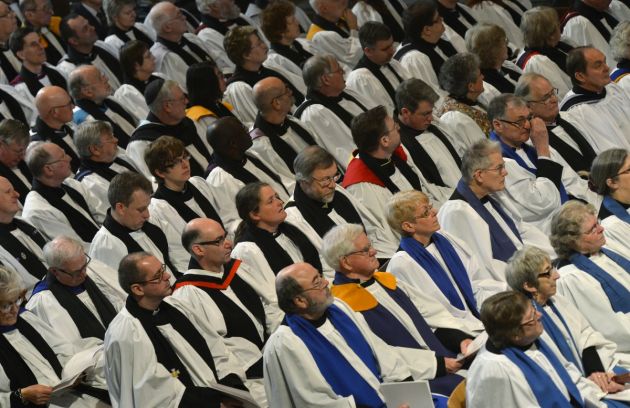New debate swirls on Church class divide in UK where clergy prefer 'trendy areas'

The class divide in Britain between those in the middle and the working class has long been debated and speculated on.
But in recent days that debate has shifted to the role of the "State" church in England and Wales, the Church of England and why the working class are shunning it.
On August 3 the Bishop of Burnley, Philip North was quoted in The Telegraph newspaper as saying the Church is "abandoning" the poor because middle-class clergy are unwilling to move away from "trendy coffee shops.
North launched his critique of Church of England priests who are too wedded to wealthy areas to minister to the poor in a speech made at a Christian conference titled New Wine.
"I am astonished at the number of people Jesus is calling to plant new churches as long as they are in Zones 1 and 2 of the London transport system," he said referring to areas of the British capital where the better heeled live.
The following day the Church Times, an independent Anglican newspaper carried a report saying the church in the UK is dominated by the middle class.
The report said church members "must eschew superior attitudes and empower working-class culture if the dearth of working-class people in their congregations is to be reversed."
It cited a new book "A Church for the Poor" published by David C. Cook whose authors, Martin Charlesworth and Natalie Williams, straddle the class divide.
"If the poor or working-class are uncomfortable in our churches, we don't need to convert them to our middle-class ways," the authors write.
"We need to move out of our comfort zones and accept them as they are."
The book has a warning against "an attitude of superiority" and the authors they cite sermons that disparage readers of the populist tabloid Sun newspapers.
The also allude to social-media postings by Christians who argued for an IQ test before people could vote in a UK referendum as to whether Britain should remain in the European Union.
Churches must "consciously empower the sub-culture of the incoming group," argue the authors.
Both authors work for Jubilee , a non-profit group established to encourage the New Frontiers network of churches to become "champions of the poor."
Charlesworth, who leads the charity, writes of his "secure middle-class background."
Williams, its communications coordinator, grew up in a "very working-class family", but writes that she is now "middle-class in almost every way."
"In my case that is largely due to becoming a Christian, copying the behaviour of others in church life, and aspiring for different things in my life as a result," she reflects.
Speaking last week, she said that she and her co-author had "really wrestled" with definitions of both poverty and class, and drawn on research and the labels people gave themselves.
LABELED MIDDLE CLASS
She said she had been challenged about why she described herself as middle-class.
"I know that if I said I am working-class, people would say 'No you're not.' But I feel I am working-class because of my upbringing. I identify with working-class values and habits much more, even though I have crossed over to a certain extent."
The book says that if every working-class Christian changes to being culturally middle-class, the churches become full of middle-class people, and this leaves working class communities bereft of working-class Christians.
"It's okay if people leave working-class culture if they want to," Williams said. "But sometimes, people come to church and there is this pressure, often unspoken, to conform to certain ways of behaving. It's okay if they are biblical, but not okay if it's just saying: 'This is the way we do things, and if you don't conform you won't fit in.'"